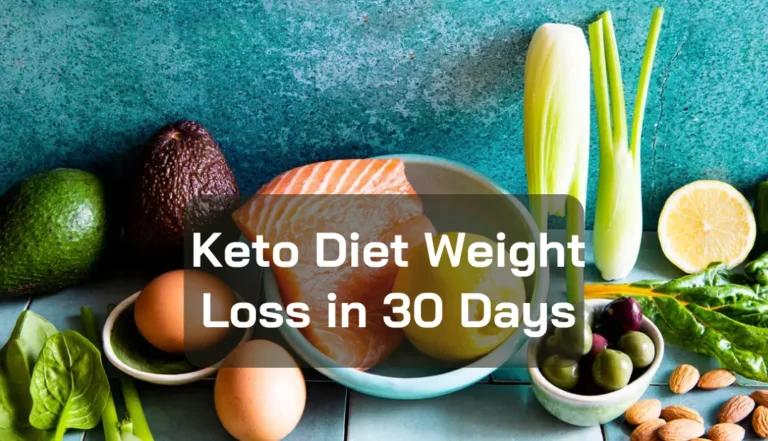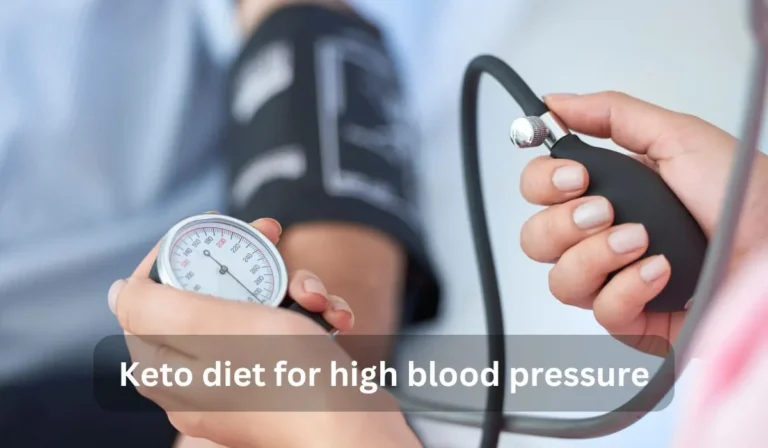Keto Diet for Pregnancy: Navigating Nutrition for Expecting Mothers
The keto diet is a popular low-carbohydrate, high-fat diet. Many people wonder if this approach is safe during pregnancy. While some women have followed a keto diet during pregnancy without issues, many experts caution against it due to potential risks to both mother and baby.

Pregnancy requires specific nutrients that are crucial for fetal development. A diet that restricts carbohydrates may limit your intake of essential vitamins and minerals that support a healthy pregnancy. Balancing your eating habits is vital for you and your growing baby.
If you are considering the keto diet or have questions about it during pregnancy, it’s important to understand the potential benefits and drawbacks. This post will guide you through the key points to consider for a healthy pregnancy while addressing your dietary choices.
Key Takeaways
- The keto diet can limit important nutrients needed during pregnancy.
- Understanding the risks is crucial before starting any diet.
- Meal planning is essential for a balanced and healthy pregnancy diet.
Nutritional Basics of the Keto Diet

The Keto Diet focuses on a specific ratio of nutrients to shift your body into a state of ketosis. You will work with your macronutrient distribution and consider important vitamins and minerals to support overall health.
Macronutrient Distribution
In the Keto Diet, your macronutrients consist primarily of fats, with moderate protein and very few carbohydrates. A typical breakdown is approximately 70% fat, 25% protein, and only 5% carbohydrates.
Foods like avocados, nuts, and olive oil are essential to providing healthy fats. Protein sources include meat, fish, and dairy. It’s vital to limit carbohydrate intake to around 20-30 grams per day. This reduction helps your body transition from using glucose to fat for energy.
Tracking your macronutrient intake can be beneficial. A food diary or app helps ensure you stay within these targets, particularly when you’re pregnant and managing both your diet and health.
Micronutrient Considerations
While following the Keto Diet, pay close attention to your micronutrient intake. Important vitamins such as B vitamins, vitamin D, and minerals like magnesium and potassium should be part of your diet.
Because restrictive diets can lead to nutrient gaps, you might consider foods rich in these nutrients. Leafy greens, berries, and low-carb vegetables provide essential vitamins.
Folic acid is crucial, especially during pregnancy, for brain and spine development. Keep in mind that many carbohydrate-rich foods contain important vitamins, so you may need to adjust your intake or consider supplements. Balancing your nutrients is key to supporting both your health and your baby’s development.
Benefits of a Keto Diet During Pregnancy

A keto diet may offer specific benefits for pregnant women, particularly in managing gestational diabetes and weight. These aspects are important to consider as they can influence both your health and your baby’s development.
Gestational Diabetes Management
Gestational diabetes occurs when blood sugar levels become high during pregnancy. Following a keto diet may help stabilize these levels. By reducing carbohydrate intake, you lower blood sugar spikes, making blood sugar easier to control.
Studies suggest that a keto diet can improve insulin sensitivity. This is key for managing gestational diabetes, as it helps your body use insulin more effectively. Additionally, fewer carbohydrates mean less need for insulin production, which can help maintain healthy levels throughout your pregnancy.
Weight Management
Maintaining a healthy weight during pregnancy is crucial for both you and your baby. A keto diet may assist in managing weight gain by promoting fat burning. When carbohydrates are limited, your body shifts to using fat as its primary energy source.
This shift can lead to a more balanced weight gain, which can reduce complications. A stable weight can also lower the risk of conditions such as hypertension and preeclampsia. Consulting with a healthcare provider before starting any diet is essential for personalized guidance tailored to your needs and circumstances.
Risks and Considerations
When considering a keto diet during pregnancy, it’s essential to understand the potential risks. Two critical areas to examine are ketosis and the risk of ketoacidosis, along with the possibility of nutrient deficiencies.
Ketosis vs. Ketoacidosis
Ketosis is a metabolic state where your body burns fat for fuel, which can happen on a keto diet. While mild ketosis might be safe for some, pregnant women need to be cautious.
Ketoacidosis is a more severe condition resulting from excessively high ketone levels in the blood. This can lead to serious health issues for both you and your baby. It is marked by symptoms like nausea, vomiting, abdominal pain, and confusion. Pregnant women are more vulnerable to this condition, making close monitoring crucial when following a low-carb diet.
Potential Nutrient Deficiencies
Following a strict keto diet can lead to nutrient deficiencies, which can impact your baby’s development. Important nutrients, like folic acid, are often found in carbohydrate-rich foods.
Folic acid is vital for your baby’s brain and spine development. Other essential nutrients, such as Vitamin D, B6, and B12, may also be lacking. Therefore, if you choose this diet, consider supplementing these vitamins to support both your health and that of your developing baby. Regular check-ins with a healthcare provider can help ensure that you maintain a balanced nutrient intake.
Keto Diet Meal Planning
Meal planning on the keto diet is essential for achieving nutritional goals while ensuring you get the nutrients needed during pregnancy. Below are practical strategies for creating a keto meal plan that suits your needs.
Sample Meal Plan
A well-structured meal plan can help you stay on track. Here’s a sample day of meals:
- Breakfast: Scrambled eggs with spinach and cheese, cooked in olive oil.
- Lunch: Grilled chicken salad with avocado, olive oil dressing, and mixed greens.
- Dinner: Baked salmon with asparagus, topped with lemon butter.
- Dessert: Chia seed pudding made with coconut milk and a few berries.
You can adjust portion sizes based on your dietary needs. Incorporate nutrient-dense foods to ensure you meet your requirements while remaining within the keto guidelines.
Snacks and Hydration
Snacking and staying hydrated are vital during pregnancy. Choose healthy keto-friendly snacks such as:
- Nuts: Almonds or walnuts are great options.
- Cheese: String cheese or cheese cubes provide calcium.
- Vegetables: Celery sticks or cucumbers with cream cheese dip.
For hydration, drink plenty of water and herbal teas without added sugars. Avoid sugary beverages, as they can disrupt ketosis and affect your energy levels. Remember to monitor your body’s hydration needs and adjust your intake accordingly.
Monitoring and Adapting the Diet
Monitoring your diet during pregnancy is crucial for your health and your baby’s growth. Adapting the ketogenic diet to fit your needs requires careful tracking and willingness to make changes as necessary.
Tracking Progress
To effectively monitor your progress on the keto diet, you should keep a daily food journal. This allows you to log what you eat, including macronutrient breakdowns of fats, proteins, and carbs.
Consider using apps that help you track your calorie and nutrient intake. These tools can simplify the process and provide visual insights into your diet.
Regularly monitor your weight and any changes in your energy levels. Paying attention to how you feel can help identify if the diet is impacting your mood or health negatively.
When to Adjust the Diet
You may need to adjust your diet if you experience unusual symptoms, such as fatigue, dizziness, or low energy. These could indicate that your body isn’t getting enough nutrients.
If your healthcare provider suggests dietary changes, take that advice seriously. Nutrient requirements often change during pregnancy, and a strict keto diet might not provide everything you need.
You should also reassess your carb intake if glucose levels are a concern. It may be beneficial to increase healthy carbs to support fetal development while still keeping some ketogenic principles in your diet. Always consult with your healthcare professional before making significant changes.
FAQS About Keto Diet for Pregnancy
When considering the ketogenic diet during pregnancy, you may have several questions about its safety, nutritional value, and potential risks. The following information aims to provide clear answers to common concerns.
Is it safe for pregnant women to follow a ketogenic diet?
Experts generally advise against the ketogenic diet during pregnancy. The primary concern is that this diet can limit important nutrients, such as carbohydrates, which are essential for fetal development. Many healthcare professionals stress that a balanced diet that includes carbohydrates is vital for growth and energy.
What diet is considered safe and nutritious during pregnancy?
A safe and nutritious diet during pregnancy typically includes a variety of food groups. This includes fruits, vegetables, whole grains, lean proteins, and healthy fats. Folic acid, iron, calcium, and other essential vitamins should also be incorporated to support both your health and the baby’s development.
Can the ketogenic diet improve pregnancy outcomes or fertility?
Current research does not strongly support that the ketogenic diet improves pregnancy outcomes or fertility. While some women report benefits for specific health conditions, most healthcare experts believe a more balanced diet is better for overall health during pregnancy.
Are there any risks associated with a low carbohydrate intake during pregnancy?
Yes, a low carbohydrate intake during pregnancy can pose several risks. These may include inadequate caloric intake, nutrient deficiencies, and poor fetal growth. Ensuring you have enough energy and nutrition is crucial to support both you and your developing baby.
How might a keto diet affect gestational diabetes management?
Using a ketogenic diet for managing gestational diabetes is debated. While some suggest low carbohydrate diets could help regulate blood sugar, many doctors recommend a balanced approach. Monitoring carbohydrate intake should be done carefully, emphasizing healthy sources rather than strict limitations.
Can intermittent fasting be safely combined with a ketogenic diet during pregnancy?
Intermittent fasting combined with a ketogenic diet is generally not recommended during pregnancy. Both practices can limit essential nutrients and calories needed for fetal growth. It is best to consult with a healthcare provider before trying any restrictive diets while pregnant.






